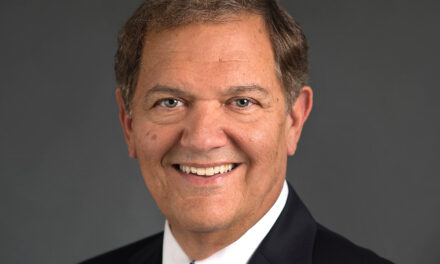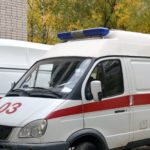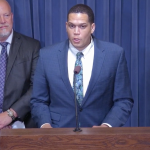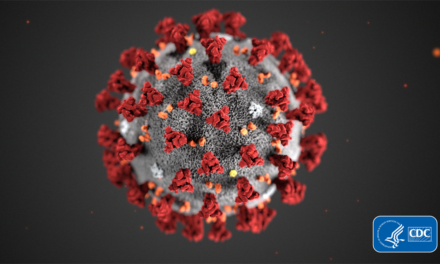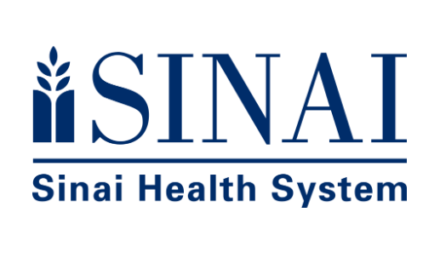
On the Record with Rosalind Franklin University’s Dr. Ronald Kaplan
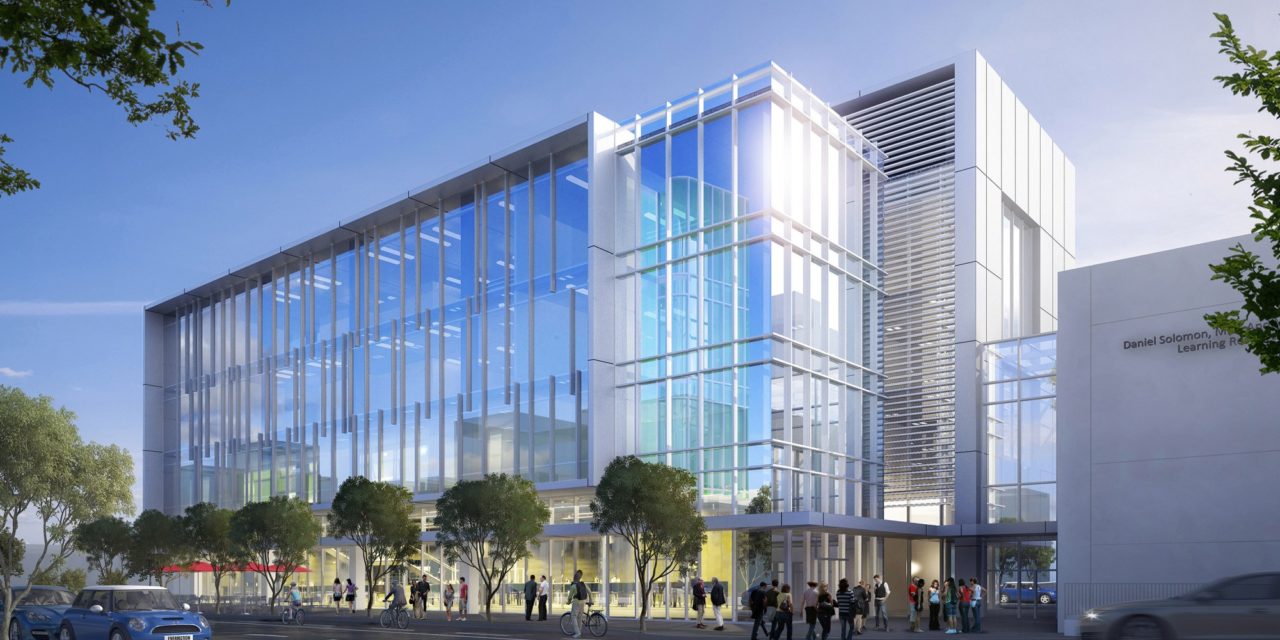
With a new 5,400 square-foot incubator and the near-completion of a 100,000 square-foot innovation and research park this fall, Rosalind Franklin University hopes to make itself a destination for bioscience companies, not only in Lake County but across the region.
The project is spearheaded by Dr. Ronald Kaplan, the university’s executive vice president for research. He recently spoke with Health News Illinois about the project, the need for research space in the Chicagoland area and how the research park can enhance Lake County’s reputation as a hub for biosciences.
Edited excerpts are below.
HNI: Tell me about the new facility and what makes it unique?
RK: So we’re building a 100,000 square-foot research building that is directly attached to our current research facility. The building will have each of the elements constituting a research park, so about two-thirds of the space in the new building will be our academic research lab moving over. We’ll be providing state-of-the-art research space for our scientists. The remaining third, 32,000 square feet or so, 6,000 square feet will be additional incubator space in addition to what we’ve built, and the remaining 26,000 square feet or so will be for industry, specifically for industry that aligns with our research mission so where we could see collaborative possibilities. It’s not manufacturing sort of things, but more research and development kinds of approaches.
In addition, as we’re putting the word out about this new research park, we’ve started getting a lot of inquiries for research space for incubator-type companies. So what we decided to do was renovate some research space that we had available on the lower level of the current building. And that was a total of about 5,000 square feet. So we opened that up as the first phase of the incubator at the beginning of April and we’ve licensed out 92 percent of the available space over the last four months. There have been a few companies that have moved in and a fourth that is moving in, we’re finalizing that deal. So there clearly is a large need for this kind of space.
HNI: Why is this incubator is so needed?
RK: I think there are a couple of things. One, in the Chicagoland area, there is a paucity of lab space in general for companies of different ilk and different sizes. There is additional space coming online late this year and next year. I think what is unique about our situation is it’s university associated, so you have the amenities and the atmosphere of a university. And one thing I want to mention which I think is very important is we designed this new building so that the academic research lab, as well as the incubator and industry space, is going to be contiguous with each other. There will be a number of shared spaces, whether it’s a conference room, break room and centralized facilities, all of that kind of stuff is going to be shared on each floor between academic labs and research labs and industry labs. And part of the motive for that is, here on campus our research is primarily basic science types of science, so we’re great at discovery sciences. While we’re small, we’re a highly effective and efficient group of scientists. But part of the mission of our university is not only the advancement of knowledge, but the advancement of knowledge and the translation of that knowledge to improve human health. And it’s that translation aspect where we think the further association with industry and helping our faculty form these startup companies and license their IP to enhance the development of a new therapeutic, diagnostic, et cetera, that’s our goal in all of this. And we think we can offer a unique environment. And so far the companies that have moved here, one or two of them have come from other research parks in the Chicagoland area, they speak very highly of the atmosphere here. And being a small institution, providing a good environment for our scientists and our citizens is really a top priority. So when someone enters our community, we really try to facilitate their success.
HNI: What sort of research is possible at the incubator?
RK: Our core research missions is anything to do with neuroscience. For example, with proteomics, cancer biology and therapeutics. Drug design and development. There really are many areas here, medicinal and chemistry types of approaches. We have a spreadsheet when a company approaches us to be in the incubator. And one of the things we look at is, what are the collaborative possibilities with what the company is doing and which specific scientists here, so we see in the Venn diagram where we overlap and whether there is a mutual benefit or not, that is a key thing. And what portion of the company’s activities that would be carried out here are really research-focused. We’re not interested in having a manufacturing facility.
So there are a wide array of companies that we can host as long as their core focus is on research and development and we see some overlap with the kinds of research going on here, which is really quite multi-dimensional.
HNI: You’ve mentioned that Lake County is home to the largest concentration of healthcare companies in the Midwest. How exactly will you tap into that market? And how do you plan to attract additional companies?
RK: I could write a whole novel on that. So there are really a couple of aspects to that. Our long-term vision is to try and make our campus the epicenter between academic-industry collaboration in Lake County. We’ve done a lot of outreach to industry and are slowly getting traction. Baxter has become a supporting partner of our incubator. Horizon Pharmaceuticals, we’re just finalizing a deal to make them a supporting partner of the incubator. There are one or two other companies who have given us a verbal commitment and we’re working on the paperwork there. So that’s in terms of actual support for the incubator, financial and otherwise.
In terms of attracting companies into the research building and the incubator, one thing is that there’s so much activity in Lake County, that in itself it is attractive for new companies to move into this research park. And our outreach efforts are not simply the Chicagoland area. We have outreach efforts in other countries, in other parts of the state and the U.S. One question that companies engage in, if they are looking for a landing spot in the U.S., is that the two coasts are often the first choice, but there are some companies that are looking in the heartland and considering the Chicago area. And that is where we are getting some interest. And then you look at Lake County, this being a hub for biomedical, bioscience and biopharma activity. That is a big attraction.
HNI: Who are member companies so far?
RK: One of the companies is BLRBio, which is a spinoff company from one of our faculty that focuses on fibrotic diseases and cancer. Another is Inspirotec, which focuses on allergens. A third one, which just started July 15, is Radiance Biosciences, which focuses on custom assay and biomarker development. And the fourth one I cannot say yet because we’re finalizing the deal, but they’re hoping to start August 1.
HNI: Do you see this project making the area a destination of sorts for those in the medical research field?
RK: So that’s our goal, absolutely. We have a larger vision of a second and third building, and that vision is based on proof of concept for this first building. Specifically, can we fill it with industry related to our mission, and then is there significant need for additional space? And we’ll see. It’s a hypothesis. We’ll see how it plays out. We have some related facts. We were able to get the enterprise zone that formerly stopped just short of our campus to be extended and include the campus, so that offers certain tax benefits for companies coming into the park. We were also able to get a $2.5 million new market tax credit from the federal government. That helps with certain infrastructure aspects and it helps us put together an educational program for internships for local youths.
One of the things that is a very important motive, we reside within north Chicago, which has certain economical and healthcare challenges. This first building, Lake County Partners did an economic impact statement for us, and it’s estimated that once it’s completed it will have an annual economic impact on the region of approximately $120 million. So one can only start to do the arithmetic if we were to build the second and third building on what kind of economic impact this would have on the region. And we think it’s an important way to help uplift the region in which we reside, that’s an important aspect for us as a university.
Health News Illinois is a nonpartisan, independent news service covering the Illinois healthcare beat. Sign up for a free trial to the newsletter here.

